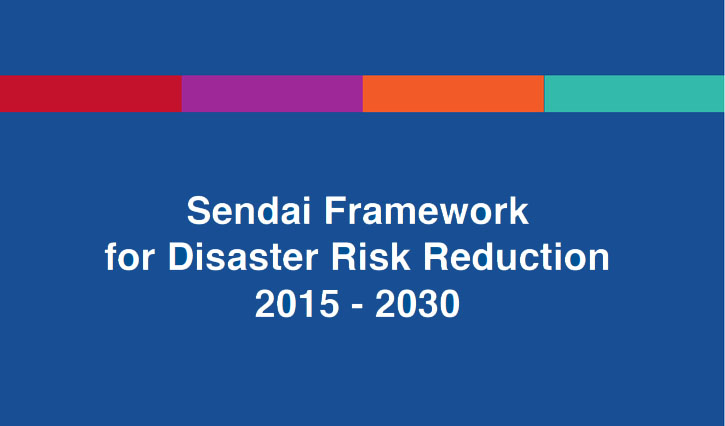The outcomes of the regular Regional Forum-Meeting of the Heads of Emergency Authorities of the Central Asia countries
On November 10, 2023 in Almaty under the chairmanship of the Kazakh side, a high-level event was held - the regular Regional Forum - Meeting of the Heads of Emergency Authorities of Central Asian Countries.
This event was held with the support of the United Nations Office for Disaster Risk Reduction, United Nations Development Programme, Deutsche Gesellschaft für Internationale Zusammenarbeit (GIZ).
Delegations led by the heads of emergency authorities of the Republic of Kazakhstan, the Kyrgyz Republic, the Republic of Tajikistan, Turkmenistan and the Republic of Uzbekistan, representatives of UN agencies, donors, international and non-governmental organizations took part in the Regional Forum.
During the Regional forum opening ceremony, the Minister for Emergency Situations of the Republic of Kazakhstan Syrym Shariphanov noted the importance of this event for constructive dialogue, exchange of information and experience, discussion of the situation in the region and identification of main tasks at a time of increasing impact of climate change, frequent occurrence of extreme weather and climate events that pose a serious threat to the sustainable economic and social development of all countries, as well as the lives and well-being of the population. He expressed hope that the agreements reached will contribute to further improvement of regional cooperation in disaster risk reduction and the implementation of the Sendai Framework for Disaster Risk Reduction in Central Asia.”
In his speech, the First Deputy Minister of Emergency Situations of the Kyrgyz Republic, Azamat Mambetov, expressed gratitude on behalf of the Minister of Emergency Situations of the Kyrgyz Republic, Major General Azhikeev Boobek, and on his own behalf, to the organizers of the event. He noted:“Central Asia is an extremely disaster-prone region, annually suffering from the consequences of natural disasters, in addition to earthquakes, the region is constantly threatened by landslides, floods, mudflows, droughts, avalanches and extreme air temperatures, which has a negative socio-economic impact on the sustainable development of the countries of Central Asia. Asia. In recent years, the problem has been aggravated by the presence of dangerous uranium sites located near rivers. “All of the above only confirms the need for further development of cooperation between our agencies, which has been successfully developing over the years and demonstrates our commitment to increasing the effectiveness of efforts to protect the population and territory of our states from natural and man-made emergencies”.
Chairman of the Committee for Emergency Situations and Civil Defense under the Government of the Republic of Tajikistan Rustam Nazarzoda, thanking the Ministry for Emergency Situations of the Republic of Kazakhstan and donors for organizing this Regional Forum, focused on the negative impact of climate change for Central Asian countries." He emphasized: “As experts from the World Meteorological Organization note, the abnormal warming of air temperatures in Asia is higher than the world average. The negative consequences of this process, such as drought, floods, landslides and fires in various regions of the world, including Tajikistan, are very alarming phenomena, leading to loss of life and damage to infrastructure. The Forum creates conditions for attracting financial resources from donors and international organizations within the regional programs and projects to improve the efficiency in protecting the population and territories from emergency situations. I am confident that our Forum will become the platform that will allow our countries to achieve the global goals of the Sendai Framework for Disaster Risk Reduction”.
The head of the delegation of Turkmenistan, Merdan Annagurdov, thanked the organizers of the event and noted that Turkmenistan is actively participating in all regional events aimed at reducing the risk of natural disasters. As practice has shown, the Regional Forum platform is an effective mechanism for strengthening international and regional cooperation in disaster risk reduction, contributing to the emergence of regional initiatives in adaptation to climate change, prevention and response to emergency situations.
The Minister of Emergency Situations of the Republic of Uzbekistan Abdulla Kuldashev supported the opinion of his colleagues and noted that he welcomed the initiative of the Center to prepare the Appeal of the heads of emergency authorities of Central Asian countries to UN Secretary-General Antonio Guterres on creating a Regional Early Warning System and mutual information about the threats and occurrence of transboundary emergencies. He drew the attention of the Regional Forum participants to the environmental problems of the Aral Sea region and measures to mitigate the consequences of the Aral Sea desiccation. “The Regional forum is a platform for discussing and adopting joint fundamental documents that will help strengthen interaction and cooperation of Central Asian countries in disaster risk reduction and ensuring further sustainable development,” he emphasized.
In her video message, the EU Special Representative for Central Asia, Ambassador Teri Hakala, expressed confidence that this meeting will once again be an excellent occasion for the exchange of views between key international partners, government representatives and technical experts. “The European Union Strategy for Central Asia places great emphasis on the sustainability of Central Asia; climate change mitigation and adaptation are important priorities for the EU. The European Union highly appreciates the intentions of Central Asian governments to improve disaster risk management to increase resilience to disasters and climate change in the region. Let me also acknowledge the important role of the Center for Emergency Situations and Disaster Risk Reduction in Almaty, which the EU has strongly supported throughout its establishment and operation, and we will continue to support the Center as part of the Team Europe initiative,” said Terri Hakala.
Head of the UNDRR Regional Office for Central Asia Ms.Natalia Alonso Cano thanked the Ministry for Emergency Situations of the Republic of Kazakhstan for arranging this event, and the heads of emergency authorities for the opportunity to attend in person and emphasized that today’s Regional Forum is a subregional platform preceding the European Central Asian Forum on Disaster Risk Reduction in 2024, noted that the UN office for Disaster Risk Reduction will provide further support for disaster risk reduction and climate change adaptation in the region.
Also, a welcoming speech was made by the UNDP Deputy Resident Representative in Kazakhstan Mr. Sukhrob Khodzhimatov, Head of the GIZ project “Climate Risk Management in Central Asia” Mr. Sergey Makarov who noted the relevance of the event and the importance of interaction with partners in DRR and adaptation to climate change in Central Asian region.
During the event, attention was paid to issues of international cooperation in disaster risk reduction, as evidenced by speeches on regional programs and projects in disaster risk reduction from such partners as UNDRR, UNDP, GIZ, the World Bank, the Swiss Agency for Development Cooperation, the Economic Commission for Europe, UNICEF, IFRC, MapAction. In addition, issues of further cooperation within the framework of the implementation of the Sendai Framework in the countries of the region were discussed.
The issue of ensuring public access to early warning systems for various disasters has become particularly significant. The heads of emergency authorities, having discussed this issue, signed an Appeal to the UN Secretary-General Antonio Guterres on the creating a Regional Early Warning System and mutual information about the threat and occurrence of transboundary emergencies.
On the sidelines of the Regional Forum, a number of bilateral meetings were held between the heads of emergency authorities of Central Asian countries and the Head of the regional office of the UNDRR for Europe and Central Asia Natalia Alonso Cano, with Regional Technical Advisor for Climate and Disaster Resilience at the UNDP Regional Center in Istanbul Stanislav Kim, with the Head of the GIZ project “Climate Risk Management in Central Asia” Sergei Makarov, with the Head of the IFRC Delegation for Central Asia Ms. Seval Guzelkilinch.
Within the framework of the Forum, an Action Plan for cooperation in prevention and response to emergency situations was signed between the Ministry for emergency Situations of the Republic of Kazakhstan and the Ministry of Emergency Situations of the Republic of Uzbekistan for 2024 -2025.
Following the results of the Regional Forum - Meeting of the Heads of Emergency Authorities of Central Asian countries, the following documents were discussed and approved:
1. The Appeal of the Heads of emergency Authorities of Central Asian countries to the UN Secretary General on creating a Regional Early Warning System and mutual information about the threat and occurrence of transboundary emergencies was signed.
2. The Initiative to create a Digital Atlas of transboundary hazards in Central Asian countries was discussed and approved using the example of the platform being developed “Digital Safety Passport and Interactive Map - Digital Atlas of Risks in the Republic of Kazakhstan.”
3. Final document – Protocol Regional Forum - Meeting of the Heads of Emergency Authorities of Central Asian countries is adopted (signed by the heads of delegations of emergency authorities of Central Asian countries) on November 10, 2023, Almaty, Republic of Kazakhstan.
Participants expressed gratitude and appreciation to UN Office for Disaster Risk Reduction, Deutsche Gesellschaft für Internationale Zusammenarbeit (GIZ), UN Development Program for close cooperation and support provided in arranging this event.
Annex:
The Appeal of the Heads of emergency Authorities of CA countries to the UN Secretary General
Initiative to create of Digital Atlas of Transboundary Hazards of Central Asian countries





















































